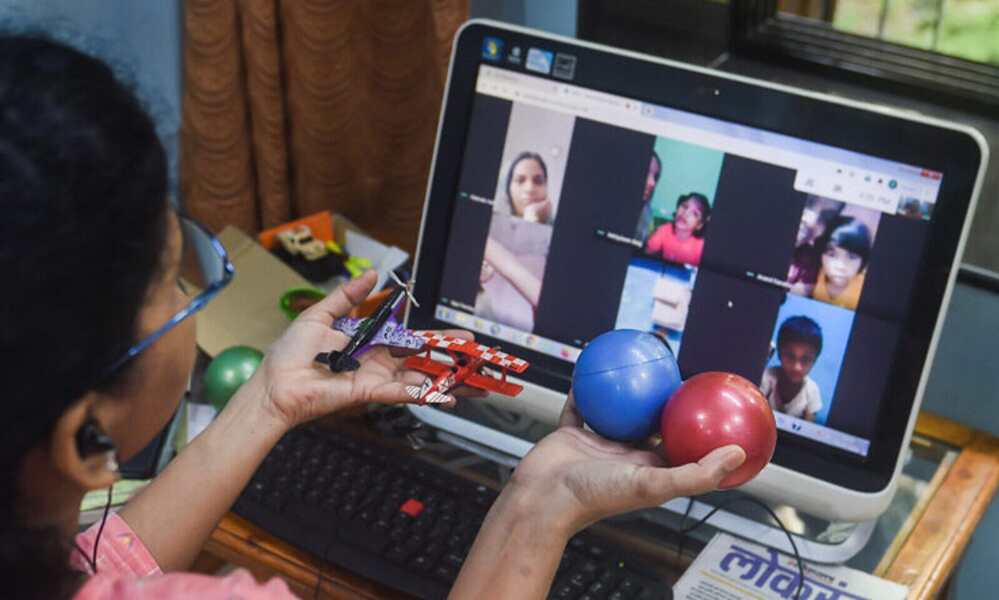Necessary adaptations
With restrictions put in place, students have no other option than to resort to online classes which have its own set of challenges

The pandemic has brought peculiar situation for students. While school students have their own trepidation, those pursuing higher education have another set of trials and deterrents.
Online classes are now being used as the last solution to the restrictions imposed by administrations to combat the pandemic. The highly contagious nature of COVID-19 has made it impossible to hold physical classes.
Despite being a necessity, the conduction of online classes faces certain genuine challenges. These include:
• There is non-availability of internet service or poor internet connectivity.
• Students lack devices to attend online classes.
• Technologically untrained parents are unable to guide their children.
• Parents/guardians are facing economic hardship in the wake of worsening state of the economy in the pandemic.
• Student-teacher relationships lack a personal touch and responsive interaction in the online mode.
• Students' attention span is low on-screen.
• There is an absence of the academic environment at home for most of the students.
• There is restricted peer-group consultation, interactions and a sense of competition.
• Health issues arise due to prolonged watching of the screen and sitting continuously in a particular posture for long hours.
All these problems need to be looked into by social scientists and psychiatrists. Some of these pertain to physical or mental health while others are related to social, clan, kinship, inter-family and inter-personal relationships. The present situation may continue for some time and alter the dynamics of societal and individual behaviour. It will also alter protocols and conduct between teachers and students. Young minds need to be trained to adapt to the new environment.
There are other issues as well that go beyond the boundaries of educational institutes:
• Regular communication has ceased within and across the societies and remains confined to nuclear family.
• Traditional family interaction process has ceased to exist despite all members being confined within the house.
• Too much familiarity breeds contempt. Children and parents are at loggerheads all the time on many issues.
• Specific challenges are faced by various families depending on their financial and social conditions.
There are fewer solutions in sight as of now, and everyone is groping in the dark for more of these. I am suggesting few solutions here for educationists and other stakeholders to consider.
Primarily, it's essential to create and design content suited for online teachings. The effectiveness of existing methods is limited to systems where there is the physical presence of teachers and students. The short-term solution is to make the same curriculum and content work in the online system. The long-term remedy is to align the curriculum and course content with online methods. Real-life approaches and anecdotes can be used in this endeavour. Analytical critical thinking, creativity, original ideas, inquisitiveness etc. must be nurtured. The orientation should resume to basics.
Lab works have to be imitated on the screen where students can understand and learn. Most of the institutions lack the infrastructure for an online lab. Attention should be paid to convert existing lab infrastructure to make them suitable for online mode.
Students have more free time now so they must be allowed to learn at their own pace. Emphasis on completion, of course, requires to be switched to the understanding of concepts.
New techniques and interaction tools have to be devised to help students cope with the absence of peer groups and classroom environment.
The prolonged closure of schools has created psychiatric and psychological issues among students, further reinforced by the inability to meet and interact with teachers. Teachers also miss probing questions, searching doubts, explorations, curiosity etc.
Additionally, lack of library facilities, sports and other extracurricular activities has diminished the all-round development of students.
Some state governments have distributed tablets, laptop etc. to students. Inexpensive, low-cost tablets must be made available for students by the government. Big corporate and PSUs can spend their CSR fund on providing these devices to students of economically weaker sections. Additionally, internet penetration in rural, quasi-rural and mofussil town areas with better bandwidth quality has to be ensured.
The institutes are also facing a financial crunch and a viable financial structure will have to be created for them to continue their functioning.
Teachers are also facing problems in taking online classes and answering the queries and concerns of the students. 'Work from home' has its consequences for teachers and their families as well.
In midst of all such suggested changes, a long-term solution by policymakers on the issue of vaccination could recommence physical real-time classes with a healthy mix of online and offline methods.
Educationists, academicians, social scientists, psychologists, administrators in the education sector, policymakers, parents, teachers and governments should urgently find a solution through wide public consultations, involving students as well, to all these crucial lingering issues. Otherwise 'universal education' would remain a slogan, a dream.
Views expressed are personal



